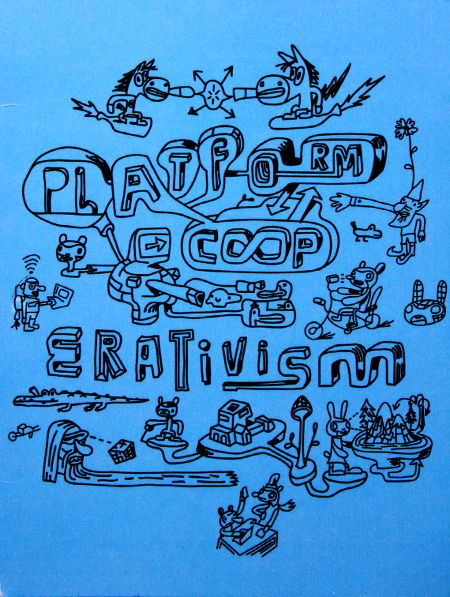Reflections on platform cooperativism and open source

By Juho Makkonen
Originally published here on Sharetribe’s Medium page.
Last week, I attended the open:2017 conference in London and came away feeling optimistic. I continue to believe that platform cooperativism — a model where users own and govern the online platforms that mediate their life and work — can offer a path to a more equitable society. My goal, both personally and with Sharetribe, is to build a future where people have more control over their own lives.
From a practical standpoint, I believe the biggest short-term potential of platform cooperativism lies in moving the offerings of existing worker cooperatives online, and the creation of member platforms for the support networks of independent freelancers.
Many worker cooperatives already exist through which independent professionals — from a wide variety of industries — earn their living. The cooperative structure typically helps freelancers with a variety of things: contract negotiation, invoicing, accounting, legal, and so on. Such cooperatives often guarantee that the freelancers have a support network in case they get sick or when they retire. Similar support structures are sometimes organized as NGOs, associations, or unions instead of cooperatives, but they share many of the same principles.
The increased “unionization” of independent workers is an obvious reaction to the “uberization” of work in our modern society. Where traditional labor unions are failing and legislation is lagging behind, new, agile structures are emerging to replace them. From a workers’ point of view, it’s simply common sense to get organized — there are plenty of benefits and few downsides.
A great example of such a support structure is the nonprofit SMart from Belgium. SMart offers tools to handle invoicing, accounting, and taxes for independent workers from different industries. It guarantees they get paid and helps them set up contracts with their customers. SMart currently has 75,000 freelancers from several countries in its network. It also employs multiple people to create services for the network, including several software developers.
There are lots of organizations like SMart out there. This list has close to 100 similar support networks.
As these support structures continue to grow, they will likely increase the gamut of software offered for their members. To me, building a marketplace platform seems like a logical choice for many of these networks. Using such marketplaces, they would be able to easily connect their workers with customer demand. This is something that most support networks currently seem to lack: a good way to market the offerings of their members to potential new customers. Such a service has a great value proposition for their members; everyone wants to get more job opportunities.
The key difference that separates such marketplaces from VC-owned platforms like Upwork, Fiverr, or TaskRabbit is their reason for being. The sole reason for the existence of the support networks is to improve the lives of their workers, whereas VC-funded marketplaces ultimately strive to enrich their shareholders — most of whom are not their workers. In many cases, this means the for-profits will try to extract as much value as possible from the transactions they facilitate. Creating support structures or pension funds for workers is not in their interest since it leads to a less profitable business — at least in the short term. They are also not likely to give their workers the option of democratic governance or ownership of their data. Support networks are heavily incentivised to do all of this, and I think that’s a great value proposition for the workers.
The great thing about support networks like SMart is that they’ve already solved the chicken and egg problem that plagues many marketplace upstarts. They already have a large existing pool of freelancers, which solves the supply side of the equation. Disintermediation is also not a problem: workers will not want to avoid the transaction fees of a platform they own themselves.
I had a chat with people from SMart at the open:2017 conference, and they told me that they’d love to offer such a platform. However, the technology challenges seemed daunting. This is exactly the problem we at Sharetribe are focused on solving. We believe that by creating an open source marketplace platform that all these support networks can easily utilize and adapt to their needs, we can provide a piece that is currently missing from the platform cooperativism equation, and take one more step towards our goal of democratizing platform ownership.